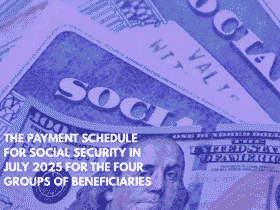When many Americans reach retirement age, they are surprised to learn that their Social Security benefits will be reduced. These reductions primarily affect individuals who have worked in both the private and public sectors throughout their careers, frequently leaving them with less income than expected.
Critics argue that these policies are unfair, while supporters say they are necessary to maintain equity in the retirement system.
These provisions, known as the Windfall Elimination Provision (WEP) and the Government Pension Offset (GPO), are intended to prevent public-sector employees who receive pensions from receiving full Social Security benefits.
The goal is to ensure that public employees do not receive excessively generous retirement payouts by receiving both a government pension and full Social Security coverage. However, many people have been surprised by this policy, as they were unaware of how severely it would affect their retirement income.
Impact of the WEP and GPO on Social Security benefits
The WEP and GPO disproportionately affect middle-class workers in certain states who spent a portion of their careers in public sector jobs that provided government pensions but no Social Security tax deductions.
Teachers, firefighters, and police officers are among the most commonly affected workers. These provisions can reduce Social Security benefits earned in the private sector in order to offset the value of government pensions. Even a brief stint in government can result in cuts to Social Security, causing financial surprises for retirees.
The WEP reduces an individual’s own Social Security benefits, whereas the GPO reduces spousal or widow benefits. The political debate over Social Security has only heated up as these issues gain prominence, with many retirees struggling to meet basic expenses.
A bipartisan bill to eliminate both WEP and GPO was introduced in the House of Representatives and received enough signatures to go to a vote.

However, supporters of the provisions argue that they are critical to maintaining fairness, claiming that without them, some workers could receive disproportionately large amounts of Social Security benefits despite having spent the majority of their careers working in government positions.
They also argue that eliminating WEP and GPO could exacerbate Social Security’s existing financial problems, potentially accelerating the date when its funds run out.
On the other side of the debate, critics argue that WEP and GPO unfairly penalize workers, particularly in states where these policies are applied unevenly, resulting in inaccurate benefit calculations. This uncertainty has made it difficult for many public-sector employees to plan for retirement.
WEP and GPO originated in the 1980s as a means of creating a more equitable retirement system. At the time, it was thought that employees with government pensions had an unfair advantage over those who relied solely on Social Security.
Pensions used to provide financial security, but many states have reduced pension benefits, particularly for educators. As a result, the provisions frequently leave retirees struggling financially.
The inconsistent use of WEP and GPO, combined with widespread system errors, has only fueled criticism. In fact, an audit by the Social Security Administration’s Office of the Inspector General found that these provisions were among the leading causes of improper payments.
The provisions primarily affect workers in 15 states and are applicable to state, county, and municipal employees in 26 states.
Many affected workers disagree with WEP and GPO proponents, who continue to defend the math behind the policies, claiming that those affected are generally better off financially than the average retiree.
For example, Anne McLeod, a retired teacher, expressed her dissatisfaction with the system in an interview with Business Insider, pointing out that her years of private sector work are barely reflected in her current Social Security payments. McLeod elaborated: “It’s almost like a punishment in a way because we chose to be educators or firemen or policemen.”
As the future of these provisions remains uncertain, they remain a contentious issue, especially as Congress considers potential changes to Social Security in light of impending fiscal challenges.














Leave a Reply